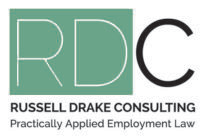As Part 2 in our series related to working with Labour Inspectors, we want to explore the issue of Labour Inspectorate Reviews – a process that most Employers are not keen to venture into unless they have to.
The reality however is that the Labour Inspectorate has wide-reaching powers to review any business against minimum employment standard compliance, at any time that they choose. Generally, a review will be undertaken where an Employee, or group of Employees, file a complaint with MBIE believing that they have received incorrect payment for either their Minimum Entitlements or in accordance with their Terms and Conditions of employment.
However, from time to time, the Labour Inspectorate will also take a more direct approach of targeting specific business sectors, or particular geographical regions.
What are Minimum Entitlements?
Primary to the Inspectorate’s activities is ensuring compliance with the provisions of the Employment Relations Act 2000, the Holidays Act 2003 and the Minimum Wage Act 2019, the key aspects being:
- Do all Employees have written Employment Agreement?
- Are all Employment Agreement compliant with the legislative provisions?
- Are these correctly interpreted and applied?
- Are all Employees paid in accordance with their agreement provisions?
- Are there any breaches of required hours of work, or rest and meal break provisions?
- Are all Employees receiving their full leave entitlements and are these being paid correctly?
- Is the payroll system compliant and are all statutory obligations being met – i.e. final pays?
This can be a harrowing experience for a business as a recent engagement we assisted a client as demonstrated.
Our client was one of many in their local region to be subject to a Labour Inspectorate review. Some of these randomly selected and some as a result of Employee complaints. As such, our client was required to provide copies of all employment documentation associated with a number of staff employed with them over the previous six-year period. This included all Employment Agreement and full copies of all wage and time records.
Following extensive interviews with the Employees (some who had since left the business) and an in-depth interview with the Employer, the Labour Inspector completed their analysis of the records. The Labour Inspector then provided their Report with this concluding that the breaches were significant with approximately $100k in arrears to be paid and given the extent of the breaches, that the matter would now be referred to the Employment Relations Authority in order that penalties could be determined.
Naturally, our client was exceptionally concerned about these outcomes and requested that we undertake an independent review of the records in order to provide them with a second opinion. We completed this review and concluded that any breaches were minor, and the arrears were considerably less than had been assessed. On behalf of our client, we raised these concerns with the Labour Inspector and requested that they reassess their original calculations. The Labour Inspector agreed to refer the matter to the MBIE Legal Team for a full assessment. The Inspectorate provided an amended report approximately four (4) months later where they assessed the arrears to be very similar to the figure we had calculated (this being approximately 25% of their original calculation). Rather than refer the matter to the ERA, they now required the client to agree to enter an Enforceable Undertaking whereby they would commit to addressing the issues (within a defined period) that contributed to the original underpayments being made. A considerably more palatable outcome than being subjected to an ERA process.
While some of the arrears were related to incorrect leave calculations, a significant portion of the arrears were associated with the hours of work clause in the agreement that provided for additional payments to be provided where maximum work hours were exceeded. This wording was not entirely clear and could have been interpreted in different ways, with the Labour Inspector adopting a different interpretation to that applied by the Employer.
This case reinforces the need to ensure that any non-standard clauses in an Employment Agreement are carefully written to avoid confusion and also the merits of seeking an independent review of your payroll records if subject to a Labour Inspectorate review.
If this newsletter raises any questions for you in relation to your own agreements and payroll records, please feel free to call us to discuss.
Look out for Part Three of this series which considers the wording in an Employment Agreement.


The article “Labour Inspector Reviews” by russelldrake sheds light on an important yet often overlooked aspect of employment regulations. As the author notes, many employers are hesitant to undergo Labour Inspectorate Reviews unless absolutely necessary. However, such reviews can provide valuable insights into an organization’s compliance with labour laws and regulations. By identifying areas of improvement and potential violations, these reviews can ultimately help employers protect their workers’ rights and avoid costly penalties. The article provides helpful tips and best practices for employers preparing for a Labour Inspectorate Review, making it a must-read for any organization committed to maintaining ethical and legal employment practices.
Thank you for your comment regarding our Newsletter – Labour Inspector Reviews. it is good to hear that we are addressing issues that are current for many organisations. Please feel free to pass on our newsletter to anyone you think may be interested or benefit from this information. if we can be of further assistance please do not hesitate to contact us directly on 07 838 0018
Regards
Linda-Maree
Russell Drake Consulting.